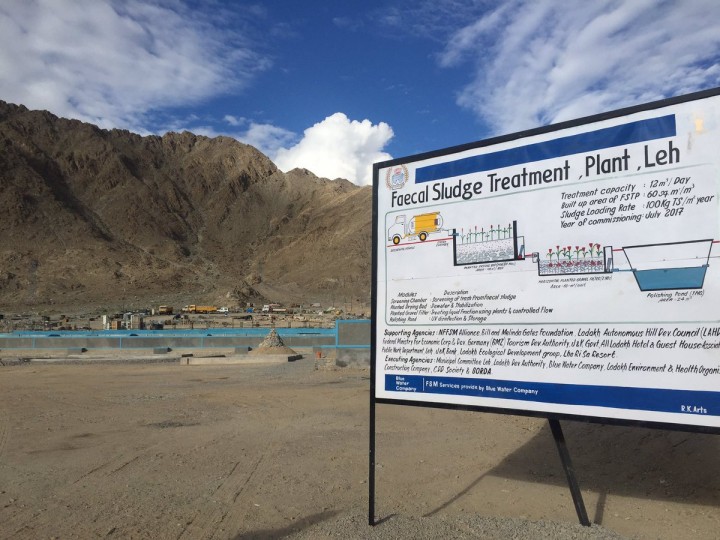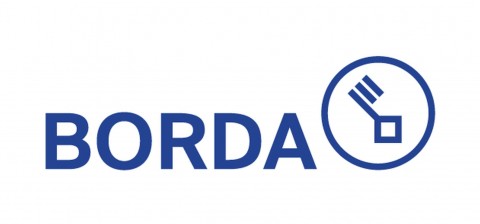Leh Faecal Sludge Treatment Facility
2014 - 2016 • Bremen Overseas Research and Development Association (BORDA)
Purpose
To treat faecal sludge from commercial establishments which were polluting Leh’s groundwater
Activities
The Faecal Sludge Treatment Plant in Ladakh, India, is one of the first in the world at such a high altitude treating faecal sludge from commercial establishments which were polluting Leh’s groundwater.
Leh has witnessed tremendous growth in the last ten years. More than 2,50,000 tourists visit Leh every month, a super sharp rise from the 30,000 visitors Leh used to get monthly till 2009-10. With the increase in the number of tourists, the number of hotels and guest houses have gone up considerably and needless to say, as has the amount of faecal sludge generated in Leh. Being a cold desert region, majority of households in Leh were dependent on dry toilets which use very little water. Underground water pollution was relatively unknown in Leh, as people would often directly consume underground water without filtering. But with the increasing number of hotels and new residences, Leh witnessed an economic boom and modern style flush toilets became common and so did the building of septic tanks. Overflowing septic tanks began leeching into the ground, resulting in brownish water coming from borewells. The municipal corporation realised the need for a faecal sludge management system.
The Municipal Council of Leh has also given extra land for the FSTP project so that in case the faecal sludge generation increases, there is enough land to extend the FSTP’s functional capabilities. The current capacity of the FSTP is to treat 12,000 litres of faecal sludge per day. Treatment process/Technology – Planted Drying Beds
Images

Image: Leh FSTP
Countries of activity
Location of main activity
Further information
In partnership with CDD Society
Videos
Video on Fecal Sludge Treatment Plant in Leh
Contact information
Rajesh Pai
Login to see the e-mail-adress of the contact person.
Filter tags
Decentralised wastewater treatment (e.g. DEWATS) East Asia & Pacific Europe & Central Asia Faecal sludge treatment processes German government International NGO Operation, maintenance and sustainable services Politicians and local decision makers Practitioners Product design and engineering Specific to one or several countries Treatment of faecal sludge Urban (entire city)
Links
Bremen Overseas Research and Development Association
Bremen
Germany
Uploaded by:
Alex Campbell (alx)















